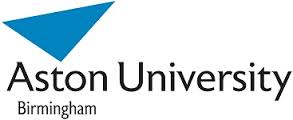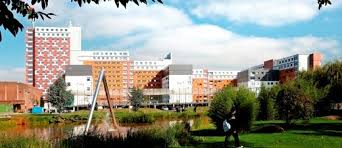Start: late September 2015, Birmingham, United Kingdom.
Course Outline & Modules:
 Industrial biotechnology (known mainly in Europe as “white biotechnology”) is the application of biotechnology for industrial purposes e.g. the use of cells (mammalian and microbial) to perform chemical processing, such as waste recycling, or to produce materials, such as beer and wine, cheese, antibiotics, and (using genetic engineering) hormones, vaccines and enzymes.
Industrial biotechnology (known mainly in Europe as “white biotechnology”) is the application of biotechnology for industrial purposes e.g. the use of cells (mammalian and microbial) to perform chemical processing, such as waste recycling, or to produce materials, such as beer and wine, cheese, antibiotics, and (using genetic engineering) hormones, vaccines and enzymes.
This programme aims to provide a high level of scientific knowledge and understanding of these processes with the option to focus on specific areas of interest through module choice.
This course offers a flexible framework of core and optional modules. The core modules are
– Advanced Laboratory Skills with data analysis and interpretation
– Understanding Professional Practice & Enhancing your Employability
– Mammalian cell biology and culture
– Enzyme Biotechnology
– Recombinant protein biotechnology
Optional modules include but are not limited to:
– Introductory molecular biology
– Industrial fermentation and bioreactors
– Bioinformatics
– Immunology
– Clinical and Molecular Endocrinology
– Toxicology
– Ageing and Regenerative Medicine
– Transplantation reactions and immunocompatibility
– Oxidative Stress and Inflammatory disease
– Neurodegenerative disorders
– ABC Transporters in health and disease
– Obesity and metabolic disorders
Click here for the Programme specification.
Learning, Teaching & Assessment
The programme is delivered using a combination of lectures, practical classes, tutorials and seminars. Some modules will include group work. The core employability module will use visiting lecturers from industry to illustrate the potential employment avenues for graduates of this course. The course includes a research project, this is likely to be a laboratory-based project where students will collect and analyse their own data. Assessment methods employed include examinations and continuous assessment through coursework; these will differ for individual modules.
Career Opportunities
Completion of this course prepares students for a research-focussed role in industry or academia. Graduates can therefore expect to enter further research, in the form of a PhD or research assistant, or may undertake a career in the commercial sector.
Click here to find all information about the MSc Molecular Biotechnology at Aston University.
Find Entry Requirements , Fees & Scholarships here.
Find out how to apply for this programme here.
Tip: More up to date educational events dealing with healthcare can be found online on the Education Database »medicine & health«.

